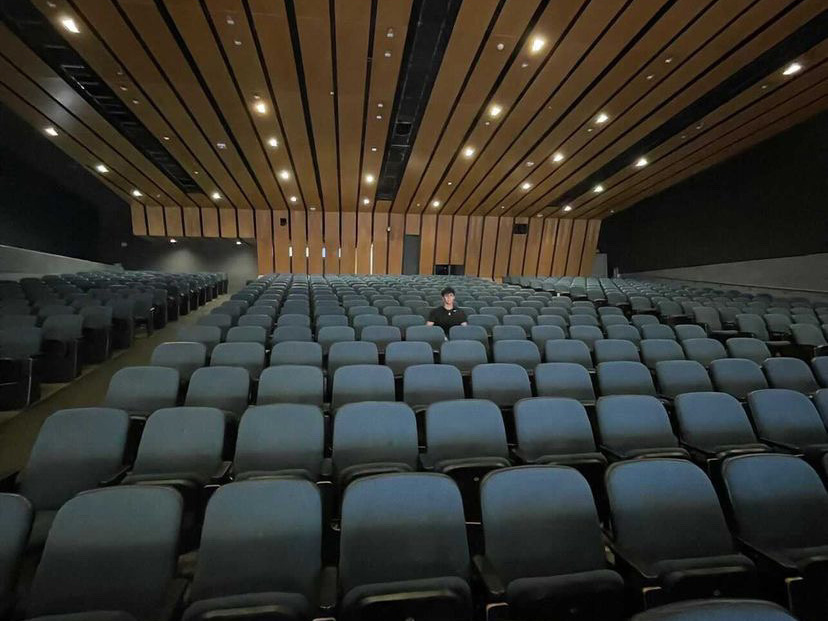The transition back to in-person instruction this winter quarter has seen a return to a campus unlike any other in the past months. But the reaction to this return has been quite mixed as students have increasingly identified a number of issues with how this transition is being handled. Bryce Hill, a UCR student, organizer and administrator of a Discord server established in opposition to the return, provided an interview that details what students and professors have said so far.
Several reasons have been cited for the opposition to the return on campus. Recently, ASUCR passed a senate resolution SR-W22-008 Resolution in Support of Remote Learning Options that outlined many of the concerns. Hill wanted to thank ASUCR, including Senator Victoria Nguyen, for the support they provided and for allowing students to have a place where their voices can be heard.
Though cases may appear to be dropping, a spike may recur with the return to a large, crowded campus. A new subvariant has been located in California, and increased exposure could lead to further mutations. “Students should not be expected to return to crowded lectures of over 200 people and then to bring that right home to their family members that may be immunocompromised or unvaccinated for one reason or another,” stated Hill in his interview.
“How is one expected to stay safe and to social distance in a crowded indoor environment for hours at a time?” The daily wellness check has students skeptical of accuracies as well as accountability, due to answers of the surveys being limited, considering the lack of enforcement. In addition, determining whether someone should stay home or return to campus is vague.
Obtaining a test, as required by UC mandates, can be difficult to acquire due to the lack of testing kits available and the limited number of testing sites on campus. This combined with the length of time required to get your test results back causes many to attend classes without actually knowing whether or not they are COVID-19 positive. Hill described, “The current measures are minimal, and in my opinion, only provide a thin veneer of safety for students.”
The inconsistency in communication and lack of time provided for students to transition back are other issues cited, especially for commuters and students who live out of state or the country. Students feel that they are being pressured to secure housing, transportation, financial support and much more in a short span of time. Hill described this concern held by many, detailing, “Being provided with seven days notice of what decision was set in stone is not a realistic situation for anyone to find themselves in. Securing housing, work and transportation in that amount of time, when everything before was already so uncertain, is not something that should be expected of us just to continue our education.”
Certain classes remain online or are delivered in a hybrid format allowing for both remote and in-person instruction. Students have voiced their appreciation for the professors and teaching assistants that have implemented a hybrid format. Hill referred to the RISE program for the UCR campus, which details that all general education classrooms are equipped with cameras and other equipment for streaming or recording classes.
Hill, a psychology major, explained that three of his four classes kept online or hybrid instruction, noting the dedication certain professors and TA’s have to manage the hybrid format. He also voiced some of his frustrations with the administration. “This is why the decision by the administration to push their responsibilities onto the professors and TAs is so sad to see. These situations are not something that should be individually handled by each professor. They already teach multiple different classes and have to deal with life outside of school as well. The administration could have made a better decision in preparing the campus and each department for this situation, but instead they chose to push off their responsibilities to people who already have too much to worry about.” This movement, as stated by Hill, “is about securing a safe option for students who need it.”
However, it should be made clear that this opposition does not translate to advocacy for UCR students to be forced to return to online or remote instruction. Rather, students hope that the administration can implement a system that allows for both remote and in-person learning. Certain students may benefit from one form of learning in comparison to the other as for some in person instruction allows for material to be relayed better while others may be dealing with issues that prevent their attendance.
The cause has currently received substantial support. 350+ students have joined the Discord to support the cause and a change.org petition advocating for this option has been signed by almost 6,900 people. You can join the discord or sign the petition to show your support.








